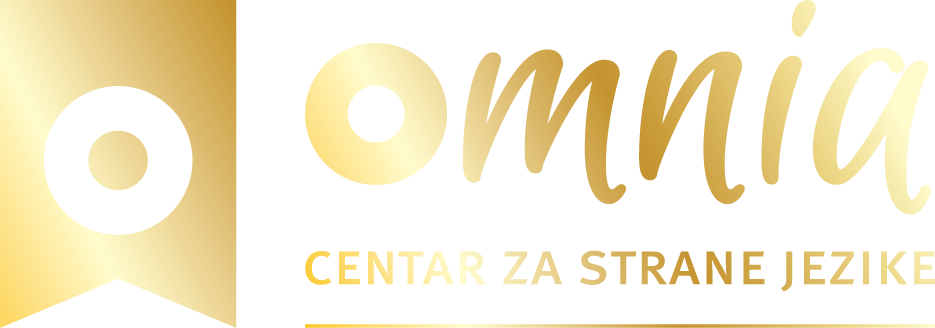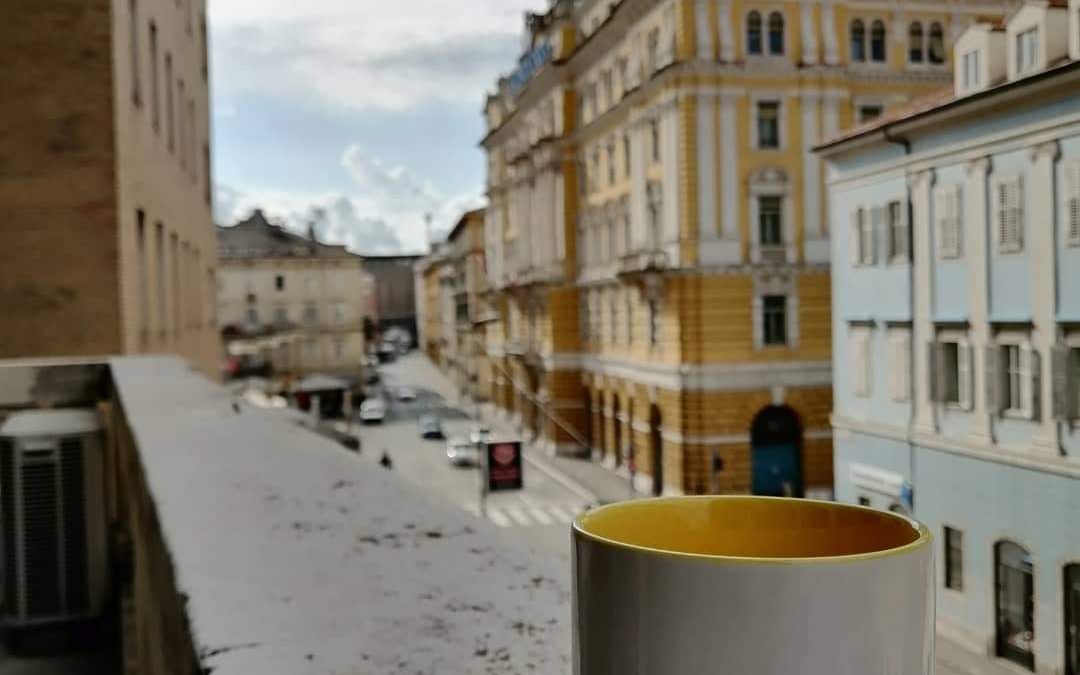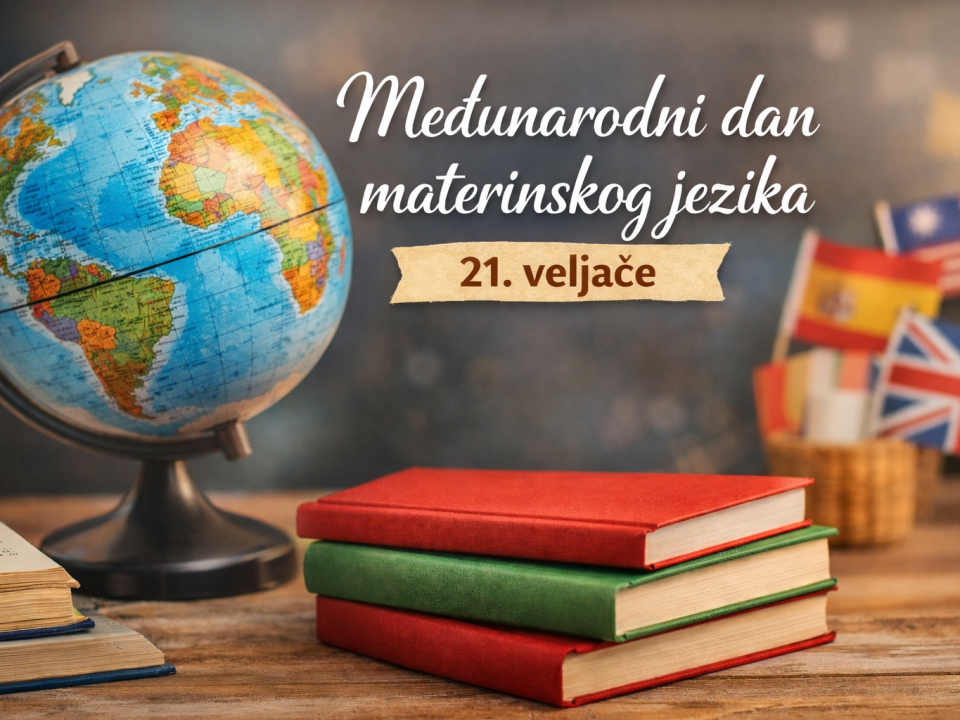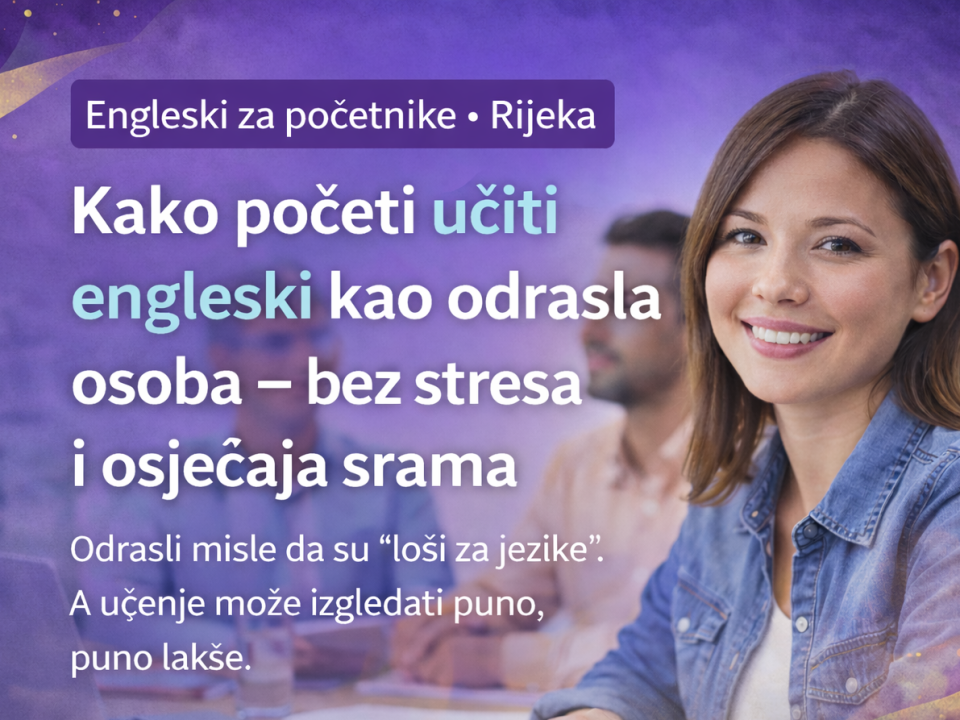
Pravilan izgovor popularnih brendova na engleskom jeziku
3. lipnja 2025.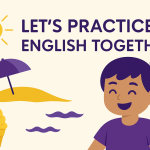
Ljetni radni listovi za djecu: Učenje engleskog kroz zabavne aktivnosti (BESPLATNI DOWNLOAD)
8. lipnja 2025.Moving to Rijeka or learning Croatian? Then you’ve probably already mastered “Dobar dan”, “Hvala”, and “Može kava.” But what about “Šta da?”, “Bo”, or “Trisduja”? These are words you won’t find in textbooks, but you’ll hear them everywhere in Rijeka.
In this blog, we’ll explain the most common Rijeka slang phrases, what they mean, and how to use (or at least understand) them like a local.
✅ 1. “Šta da?” – More Than Just “What?”
Literally, “šta da?” might look like “what that?” — but it’s a multi-functional phrase with different meanings, depending on the tone and context.
Meanings:
- “Are you serious?”
- “Really?”
- “No way!”
- (Sometimes even) “I told you so.”
Examples:
- “Napokon sam položio ispit.”
“Šta da?”
→ “I finally passed the exam.”
→ “No way?” / “Seriously?”
Tone is everything. Said with sarcasm, it can also mean “I knew it” or “Told you!”
✅ 2. “Bo” – The Universal Answer to Everything
This tiny word is hard to define. It’s a vocal shrug — think of it as Rijeka’s version of “meh,” “dunno,” or “whatever.”
Examples:
- “Zašto nije došao?”
“Bo.”
→ “Why didn’t he come?”
→ “No idea.” - “Hoćeš ići van večeras?”
“Bo… možda.”
→ “Are you going out tonight?”
→ “Eh… maybe.”
It can also express indifference, confusion, or mild frustration. Locals love it. You’ll hear it everywhere.
✅ 3. “Šta da da ne” – Peak Rijeka Sarcasm
This gem combines “šta da” and “da ne” — creating a phrase that, although it makes no grammatical sense, sounds distinctly Croatian and Rijekan.
Rough translation:
→ “Well, obviously not.” / “Of course it is not.”
But it’s used when you’re ironically confirming something is NOT true – often after a rhetorical question where the answer is no.
🗣️ Example:
“Is Dinamo better than Rijeka?”
“Come on, of course not!”
→ That’s when a Riječanin says: “Šta da da ne.”
🔁 It’s like saying:
- “As if!”
- “Yeah right, obviously not.”
- “What, yes, no — obviously no.”
- “Isn’t it so?”
It’s layered with sarcasm, agreement, and a local rhythm.
This phrase is often said with dry humor — it’s a cultural wink. It’s not a logical phrase – it’s a cultural, emotional reaction. You say it when something is so obviously untrue, and it’s almost funny that someone even asked.
✅ 4. “Trisduja” – Counting Rijeka-Style
“Trisduja” is Rijeka slang for €3.20 — a shortened way of saying “tri eura i dvadeset centi.”
Why? Because Rijeka locals tend to condense words and syllables, especially when discussing money, time, or ordering food.
Other similar examples:
- “Kič sendviča” – A bite of a sandwich
✅ 5. Slang as Cultural Identity
These expressions aren’t just funny quirks — they’re part of Rijeka’s linguistic identity. A mix of Croatian, Italian, and local dialects (Chakavian, čakavski), Rijeka speech is characterized by its rhythm, irony, and dry wit.
Even if you don’t use them yet, understanding them will help you connect with locals, follow conversations, and appreciate the cultural context.
✅ How We Teach This at Omnia
At our Croatian language school in Rijeka, we don’t just teach grammar — we teach real language, including:
- Everyday phrases used in different regions
- Cultural context behind idioms
- Practical expressions used at cafés, markets, and on Korzo
🎯 Ready to speak like a local? Start your Croatian course today.
Whether you live in Rijeka or love its vibe, we’ll help you:
- Learn Croatian from zero or build on what you know
- Understand locals even when they’re sarcastic 😉
- Speak more naturally and confidently
📍 In-person or online Croatian lessons
🗨️ Friendly, practical, culture-based learning
👉 Join our Croatian courses here and discover the language behind the phrases.
